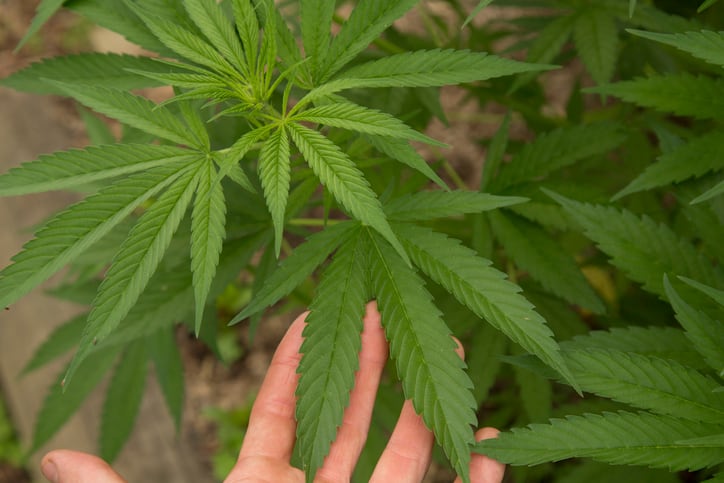Texas is lining up a major revamp of hemp laws through Senate Bill 3: which would tighten the rules around consumable hemp products by restricting the cannabinoids that can be sold in the state.
It has already been through the House and Senate and is now with Governor Greg Abbott, who holds the power to veto the legislation (With the ban a hot topic in Texas, the Governor has pledged to give the bill careful consideration and approach the topic like a judge).
Supporters pushing for the bill say unsafe products are being directed at children.
But the hemp industry says these problems are easily addressed with clear and simple regulation.
Alcohol-free innovation
For many farmers and businesses who have seen hemp as an exciting business opportunity and lifeline for difficult times, the law would be a huge blow.
And that’s the same for the beverage industry: which sees hemp beverages as a promising new adult beverage category in an era where consumers are turning away from alcohol.
Hemp beverages can come in the form of seltzers, sodas, mocktails, coffees, teas, and other non-alcoholic drinks: which contain a small infusion of hemp-derived cannabinoids.
While they technically have the potential to get consumers ‘high’ due to THC, they are generally considered as ‘micro-dosed’ or ‘sessionable’.
Hemp-derived THC beverages typically contain 2-10mg of THC (for perspective, 10mg is often considered as ‘one serving’ in states that have legalized cannabis).
The hemp legislation, if passed, will have a ‘catastrophic impact’ on Texas small businesses, consumers and taxpayers, says Christopher Lackner, who heads up the Hemp Beverage Alliance and its 320+ members.
“The potential for hemp beverages is huge in Texas and across the country,” he said. “It’s the fastest growing category in adult beverage right now.
“In Texas, hemp beverages have been embraced by retailers, wholesalers and consumers. And for craft brewers who are seeing a downturn in sales, hemp beverages couldn’t have come at a better time.”
The potential of hemp beverages is particularly huge in the booming alcohol-free category and could represent a huge economic contribution to the state.
“Hemp beverages are a nascent industry but at maturity we are looking at millions of jobs throughout the US,” said Brian Hart, the owner of Dallas CBD and THC seltzer brand Vitam and a member of the Hemp Beverage Alliance in Dallas.
“There are strong trends of consumers wanting alcoholic free options. The potential for hemp beverages are tremendous.
“From personal experience of selling Vitam at liquor stores, I’ve had repeat customers speak with me (I do tastings to have people try the product) and tell me they are reducing the amount of alcohol they are drinking or altogether quitting because they are switching to my hemp beverage. For someone who would drink alcohol five times a week and now are reducing it to the weekend or not at all, that makes a meaningful impact on their health.
“So hemp beverages are an alternative to alcohol.”
But it’s not just about alcohol drinks. The hemp beverage category has potential to embrace category blurring and look elsewhere. Vitam, for example, has created a beverage with vitamins and minerals to widen its potential target audience to sectors such as sports athletes looking for lost electrolytes.
Regulatory guidance
The Hemp Beverage Alliance says that regulatory principles that provide robust product testing and keep products away from children are the answer: with the added benefit that it provides tax revenues.
The organization has already set out a template of how these principles should be applied to create a ‘safe, thriving and transparent hemp industry’.
And since hemp was legalized in the 2018 Farm Bill, states like Minnesota, Kentucky, Georgia, Tennessee and others have developed regulatory frameworks to support the industry.
And the Hemp Beverage Alliance expects other states to develop similar frameworks throughout the year.
The Hemp Beverage Alliance's regulatory principles
• Age restriction: The sale of cannabinoid-infused beverages should be restricted to adults 21+
• Safety: The safety of the consumer is paramount and should be a driving force in the industry.
• Serving size and potency: THC levels should be safe, effective, and provide value to the consumer.
• Labeling: Clear, consistent labeling is necessary to build trust and credibility
• Regulatory clarity: Regulations are necessary and should be thoughtful, concise, and support consumer safety and industry growth.
• Marketplace consistency: In lieu of federal action, state governments should work together to develop guidelines that are consistent across state lines.
The principles can be found in full here.
There are currently 38 states that allow hemp beverages to be sold in some form: although regulation in some states is stricter than others and discourages the category from thriving, says Lackner.
According to a March 2025 public opinion poll, a 68% of Texas voters want consumable THC to remain legal but do want to see the category strictly regulated.

